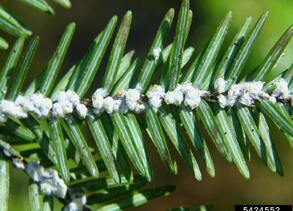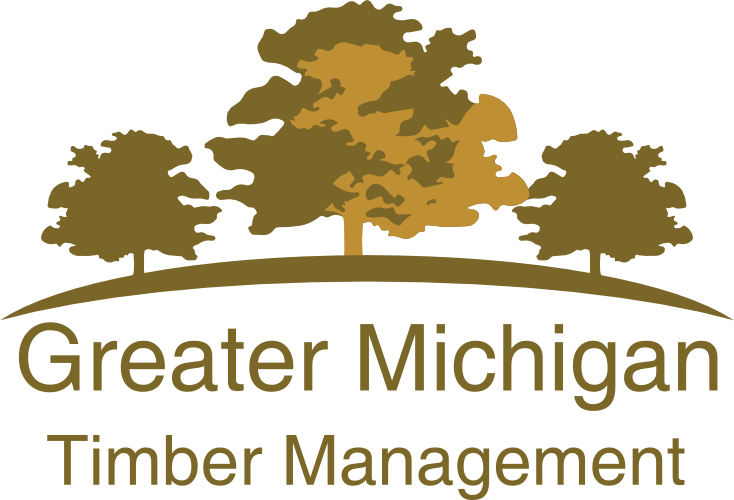|
The return of spring weather has the officials warning landowners to keep an eye out for infestations of hemlock woolly adelgid (HWA), an invasive insect native to east Asia and now raising concern for landowners and forest managers in Michigan. The known extent of investation are in Mason, Ottawa, Oceana, Muskegon and Alegan counties.
HWA affects eastern hemlock trees (Tsuga canadensis) by sucking the tree’s sap and disrupting the flow of nutrients to needles and branches until the tree grows weak and eventually dies. This tiny insect is difficult to see, but it is identifiable by the cottony, white egg-containing sacs that form on the undersides of the tree’s branches. HWA was accidentally introduced to the West Coast of the United States in the 1920s, and by 1951 it had reached Virginia and spread to 20 states along the East Coast. In the 2010s, it was transported into Michigan on nursery stock. Since then, a quarantine with mandatory treatment of all incoming hemlocks was established to prevent future exposures. Thanks to HWA’s relatively slow spread rate and the diligent effort by forest managers, the spread has been limited to Stopping HWA does take considerable effort, though. “We’re working on eradication, which is difficult because we keep treating, and it keeps spreading,” said Robert Miller, the Invasive Species Prevention and Response Specialist at the Michigan Department of Agriculture & Rural Development (MDARD). Trees left untreated will more than likely die in 4 to 10 years. Miller described a band of hemlock trees along the shore of Lake Michigan as currently facing the most immediate threat. Many efforts are being focused there to ensure that the infestation does not spread further into northern Michigan where there is a much higher concentration of hemlock. The state has an estimated 170 million eastern hemlock trees, which play critical roles in their ecosystems by providing habitat for other plants and wildlife and protecting waterways from run-off and erosion. Michigan has placed several eradicative and preventative measures in place to control the HWA spread, including treatments with insecticide that contains either Imidacloprid or Dinotefuran as an active ingredient. Effective treatment may require reapplication in the following few years. According to Miller, MDARD often works with Cooperative Invasive Species Management Areas (CISMAs) and other partners to survey and treat any infestations. They are currently collaborating with the West Michigan Conservation Network, which services the area of infestation near Lake Michigan. The work is largely funded by the Michigan Invasive Grant Program (MISGP) from the state and the Great Lakes Recovery Initiative (GLRI). Michigan landowners are asked to call 800-292-3939 to report any infestations on their property. Click here for more information regarding (HWA)
0 Comments
Your comment will be posted after it is approved.
Leave a Reply. |
David & Valerie Zimmer
Buyers of standing timber and owners of Greater Michigan Timber Management, a Forest and Timber Management company located in the northern lower peninsula of Michigan. Categories
All
Call us for all your forest management needs at (989) 390-0705 or (989) 473-3791 We are happy to answer any question you may have. Greater Michigan Timber Management. Buyers of standing timber. Specializing in sustainable forestry management and sound stewardship practices.
(989) 473-3791 (989) 370-0705 Greater Michigan Timber Management: The timber management company that cares!
(989) 473-3791 |






